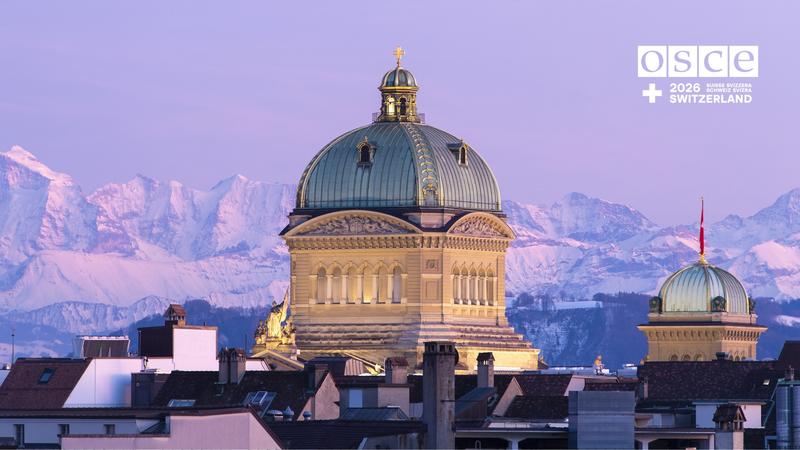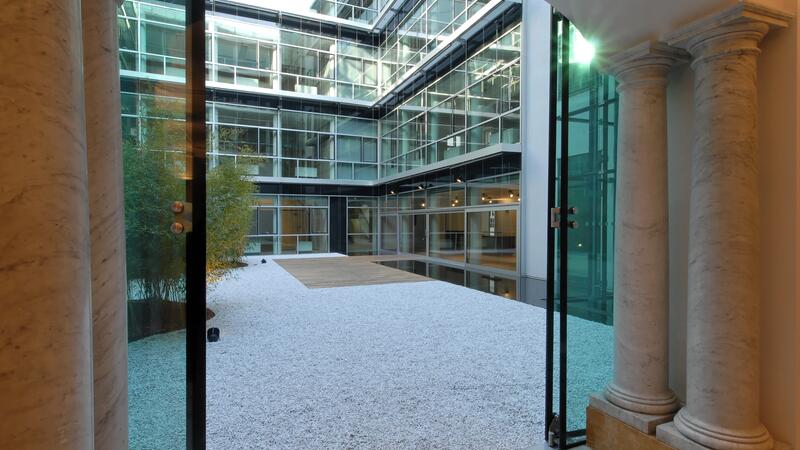-
Our work
-
Fields of work
- Arms control
- Border management
- Combating trafficking in human beings
- Conflict prevention and resolution
- Countering terrorism
- Cyber/ICT Security
- Democratization
- Economic activities
- Education
- Elections
- Environmental activities
- Gender equality
- Good governance
- Human rights
- Media freedom and development
- Migration
- National minority issues
- Policing
- Reform and co-operation in the security sector
- Roma and Sinti
- Rule of law
- Tolerance and non-discrimination
- Youth
- Field operations
- Projects
-
Meetings and conferences
- Summit meetings
- Review Conferences
- Ministerial Council meetings
- Plenary meetings of the Permanent Council
- Plenary Meetings of the Forum for Security Co-operation
- Security Review Conferences
- Annual Implementation Assessment Meetings
- Economic and Environmental Forum
- Economic and Environmental Dimension Implementation Meetings
- Human rights meetings
- Media conferences
- Cyber/ICT security conferences
- Conference of the Alliance against Trafficking in Persons
- Gender equality conferences
- Annual OSCE Mediterranean conferences
- Annual OSCE Asian conferences
- Partnerships
-
Fields of work
-
Countries
- All
-
Participating States
- Albania
- Andorra
- Armenia
- Austria
- Azerbaijan
- Belgium
- Belarus
- Bosnia and Herzegovina
- Bulgaria
- Canada
- Croatia
- Cyprus
- Czechia
- Denmark
- Estonia
- Finland
- France
- Georgia
- Germany
- Greece
- Holy See
- Hungary
- Iceland
- Ireland
- Italy
- Kazakhstan
- Kyrgyzstan
- Latvia
- Liechtenstein
- Lithuania
- Luxembourg
- Malta
- Moldova
- Monaco
- Mongolia
- Montenegro
- The Netherlands
- North Macedonia
- Norway
- Poland
- Portugal
- Romania
- Russian Federation
- San Marino
- Serbia
- Slovakia
- Slovenia
- Spain
- Sweden
- Switzerland – OSCE Chairpersonship 2026
- Tajikistan
- Türkiye
- Turkmenistan
- Ukraine
- United Kingdom
- United States of America
- Uzbekistan
- Asian Partners for Co-operation
- Mediterranean Partners for Co-operation
-
Structures and institutions
- Chairpersonship
-
Secretariat
- Secretary General
- Office of the Secretary General
- Conflict Prevention Centre
- Transnational Threats Department
- Office of the Special Representative and Co-ordinator for Combating Trafficking in Human Beings
- Office of the Co-ordinator of OSCE Economic and Environmental Activities
- Gender Issues Programme
- Opportunities for Youth
- Department of Human Resources
- Department of Management and Finance
- Office of Internal Oversight
- Documentation Centre in Prague
- Institutions
-
Field operations
- Presence in Albania
- Centre in Ashgabat
- Programme Office in Astana
- Programme Office in Bishkek
- Mission to Bosnia and Herzegovina
- Programme Office in Dushanbe
- Mission in Kosovo
- Mission to Moldova
- Mission to Montenegro
- Mission to Serbia
- Mission to Skopje
- Project Co-ordinator in Uzbekistan
- Closed field activities
- Parliamentary Assembly
- Court of Conciliation and Arbitration
- Organizational structure
- About us
Structures and institutions
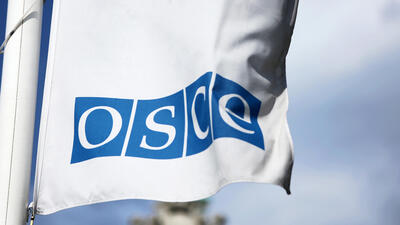
The OSCE comprises several structures and institutions that implement and co-ordinate the Organization’s operational activities, mandated by its participating States.

Quick links
Chairpersonship
The Chairpersonship, rotating among participating States on an annual basis, is vested with the overall responsibility and co-ordinating role for the OSCE’s activities.
Secretariat
Under the direction of the Secretary General, the Vienna-based Secretariat provides operational support to the OSCE.
OSCE institutions
Several specialized institutions focus on specific aspects of the OSCE’s comprehensive security mandate.
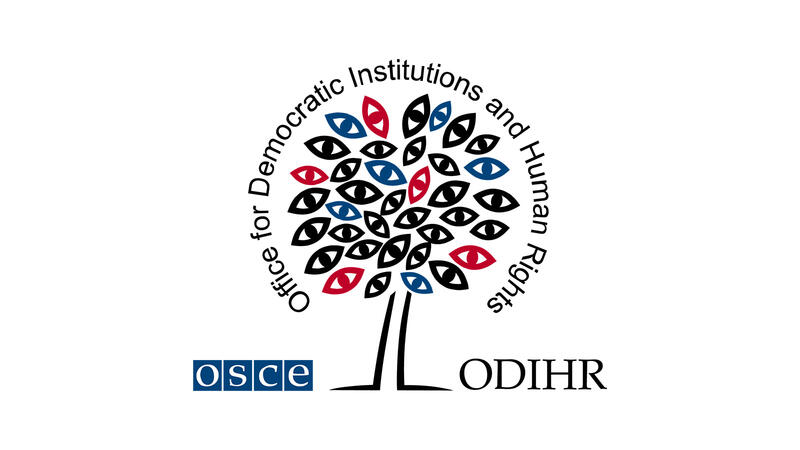
Homepage
OSCE Office for Democratic Institutions and Human Rights
The OSCE Office for Democratic Institutions and Human Rights (ODIHR) provides support, assistance and expertise to participating States and civil society to promote democracy, rule of law, human rights and tolerance and non-discrimination. ODIHR observes elections, reviews legislation and advises governments on how to develop and sustain democratic institutions. The Office conducts training programmes for government and law-enforcement officials and non-governmental organizations on how to uphold, promote and monitor human rights.

Homepage
OSCE High Commissioner on National Minorities
The High Commissioner works to identify and prevent conflicts related to tensions involving national minority issues.
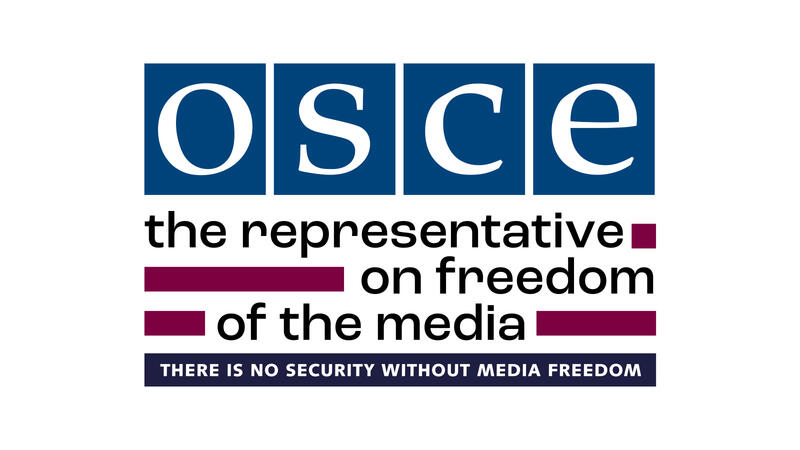
Homepage
OSCE Representative on Freedom of the Media
The Representative’s activities can be divided into two groups: observing media developments as part of an early warning function and helping participating States abide by their commitments to freedom of expression and free media. This includes efforts to ensure the safety of journalists; assist with the development of media pluralism; promote decriminalization of defamation; combat hate speech while preserving freedom of expression; provide expert opinions on media regulation and legislation; promote Internet freedom; and assist with the process of switching from analogue to digital broadcasting. The Representative also holds annual regional media conferences, bringing together journalists, representatives of civil society and government, as well as academics, to discuss current media freedom issues.
OSCE in the field
Every field operation has a tailor-made mandate, agreed by consensus of the OSCE participating States and established upon invitation by the host country.
Parliamentary Assembly
The OSCE Parliamentary Assembly was created as part of the institutionalization of the CSCECSCE
Conference on Security and Co-operation in Europe at its 1990 Paris Summit.
Bringing together over 300 parliamentarians from across the participating States, the OSCE PA provides an important forum for parliamentary dialogue and plays an essential role in advancing the OSCE’s mission to promote stability, security and sustainable peace across the region.
Court of Conciliation and Arbitration
Based in Geneva, the Court aims to settle inter-State disputes through conciliation or arbitration.
